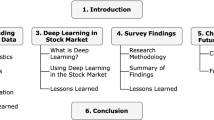Abstract
Recently, it was shown that coherent risk measures are not robust with respect to changes in large data. On the other hand, in this article, we show that robust risk measures always generate pathological financial positions, Good Deals. This leaves a decision maker with a problem to either choose a robust risk measurement approach in a day-to-day real life decision making or an approach, which can correctly price financial products by considering the market principals such as No Good Deal assumption. In this paper, after stating clearly this problem, we propose a solution by introducing the minimal distribution-invariant modification of the risk measure, which does not produce any Good Deal and also is more robust comparing to the family of coherent risk measures.
Similar content being viewed by others
Notes
In the literature it is also known as law-invariant.
The reason is that Filipovic and Svindland [21] prove the canonical domain of any distribution-invariant coherent risk measure \(\rho \) can be extended to \(L^1\).
It shows that, if someone enters the lottery, he/she should be payed by one or if he/she is risk averse by more than one dollar.
For example unimodal distributions has this property.
References
Artzner, Philippe, Delbaen, Freddy, Eber, Jean-Marc, Heath, David: Coherent measures of risk. Math. Financ. 9(3), 203–228 (1999)
Balbás, Alejandro: Mathematical Methods in Modern Risk Measurement: A Survey. Real Academia de Ciencias, Serie Applied Mathematics (2007)
Schied, Alexander: Optimal investments for risk- and ambiguity-averse preferences: a duality approach. Financ. Stoch. 11(1), 107–129 (2007)
Cont, Rama, Deguest, Romain, Scandolo, Giacomo: Robustness and sensitivity analysis of risk measurement procedures. Quant. Financ. 10(6), 593–606 (2010)
Assa, H., Karai, K.M.: Hedging, Pareto optimality, and good deals. J. Optim. Theory Appl. 157(3), 900–917 (2013)
Föllmer, Hans, Schied, Alexander: Robust preferences and convex measures of risk. In: Advances in Finance and Stochastics, pp. 39–56. Springer, Berlin (2002)
Rockafellar, R.T., Uryasev, S., Zabarankin, M.: Generalized deviations in risk analysis. Financ. Stoch. 10(1), 51–74 (2006)
Rockafellar, R.T., Uryasev, S., Zabarankin, M.: Optimality conditions in portfolio analysis with general deviation measures. Math. Program. 108(2–3, Ser. B), 515–540 (2006)
Branda, Martin: Diversification-consistent data envelopment analysis with general deviation measures. Eur. J. Oper. Res. 226(3), 626–635 (2013)
Ruszczyński, Andrzej, Shapiro, Alexander: Optimization of convex risk functions. Math. Oper. Res. 31(3), 433–452 (2006)
Ruszczyński, Andrzej, Shapiro, Alexander: Conditional risk mappings. Math. Oper. Res. 31(3), 544–561 (2006)
McNeil, Alexander J., Frey, Rüdiger, Embrechts, Paul: Quantitative risk management. In: Concepts, Techniques and Tools. Princeton Series in Finance. Princeton University Press, Princeton, NJ (2005)
Kusuoka, Shigeo: On law invariant coherent risk measures. In: Advances in Mathematical Economics, vol. 3, pp. 83–95. Springer, Tokyo (2001)
Assa, Hirbod, Balbás, Alejandro: Good deals and compatible modification of risk and pricing rule: a regulatory treatment. Math. Financ. Econ. 4, 253–268 (2011)
Cochrane, John H., Saa-Requejo, Jesus: Beyond arbitrage: good deal asset price bounds in incomplete markets. J. Polit. Econ. 108, 79–119 (2000)
Černý, Aleš, Hodges, Stewart: The theory of good-deal pricing in financial markets. In: Mathematical Finance—Bachelier Congress, 2000, Paris, pp. 175–202. Springer, Berlin (2002)
Černý, Aleš: Generalised sharpe ratios and asset pricing in incomplete markets. Eur. Financ. Rev. 7, 191–223 (2003)
Jaschke, Stefan, Küchler, Uwe: Coherent risk measures and good-deal bounds. Financ. Stoch. 5, 181–200 (2001)
Alexander S. Cherny. Equilibrium with coherent risk. Quantitative Finance Papers (2006). arXiv:math/0605051
Delbaen, Freddy: Coherent risk measures on general probability spaces. In: Advances in Finance and Stochastics, pp. 1–37. Springer, Berlin (2002)
Filipovi, Damir, Svindland, Gregor: The canonical model space for law-invariant convex risk measures is \(L^1\). Math. Financ. 22(3), 585–589 (2012)
Balbás, Alejandro, Balbás, Beatriz, Heras, Antonio: Optimal reinsurance with general risk measures. Insur. Math. Econ. 44(3), 374–384 (2009)
Balbás, Alejandro, Balbás, Raquel, Garrido, José: Extending pricing rules with general risk functions. Eur. J. Oper. Res. 201(1), 23–33 (2010)
Balbás, Alejandro, Balbás, Raquel, Mayoral, Silvia: Portfolio choice and optimal hedging with general risk functions: a simplex-like algorithm. Eur. J. Oper. Res. 192(2), 603–620 (2009)
Föllmer, H., Schied, A.: Stochastic Finance, Volume 27 of de Gruyter Studies in Mathematics. Walter de Gruyter & Co., Berlin (2004). extended edition
Huber, P.J.: Robust Statistics. John Wiley & Sons Inc ( Wiley Series in Probability and Mathematical Statistics), New York (1981)
Author information
Authors and Affiliations
Corresponding author
Additional information
Communicated by Moawia Alghalith.
Rights and permissions
About this article
Cite this article
Assa, H. Trade-off Between Robust Risk Measurement and Market Principles. J Optim Theory Appl 166, 306–320 (2015). https://doi.org/10.1007/s10957-014-0593-8
Received:
Accepted:
Published:
Issue Date:
DOI: https://doi.org/10.1007/s10957-014-0593-8
Keywords
- Risk measures
- Pricing rules
- Good deals
- Robustness
- Representative agent hedging problem
- Minimal modification



